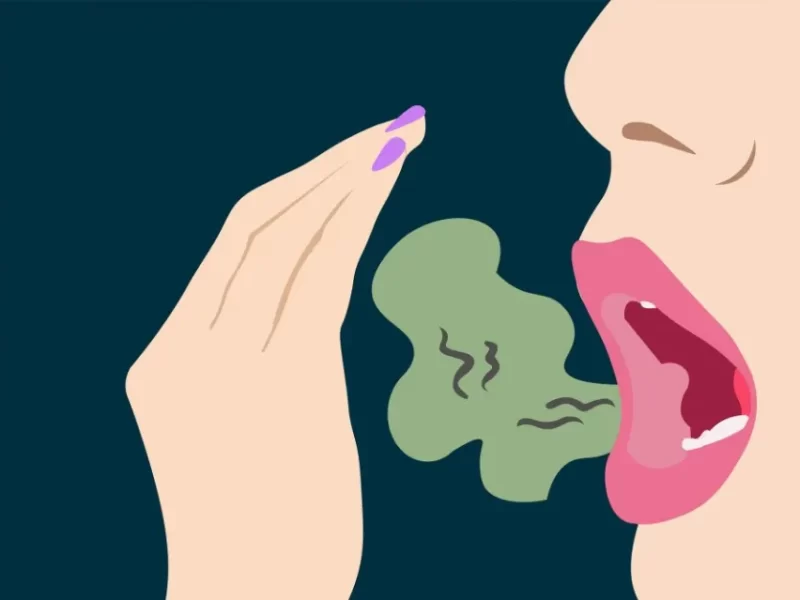The flu is more likely to spread as winter draws closer. You may feel depressed after the flu if you have a persistent cough, aches and pains, or feel weak. There are steps you can take to recover as quickly and as effectively as possible, even though this may temporarily put your life on hold.
Here are some ideas for the best possible healthiest way to recover from the flu.
How Do You Know You Have the Flu?
Flu (influenza) symptoms range from mild to severe, and they occasionally result in death. Flu symptoms typically appear out of nowhere. People who have flu often feel some or all of these symptoms:
- Fever or feeling feverish/chills
- Cough
- Sore throat
- Runny or stuffy nose
- Muscle or body aches
- Headaches
- Fatigue (tiredness)
- Vomiting and diarrhea are possible in some people, but kids are more likely to experience these symptoms than adults.
Most people who get the flu will recover in a few days to less than two weeks, but some people will experience complications (like pneumonia) as a result of the flu, some of which can be serious and even fatal.
While pneumonia is a serious flu complication that can arise from either a flu virus infection alone or from a co-infection of the flu virus and bacteria, sinus and ear infections are examples of moderate flu complications. Myocarditis, encephalitis, inflammation of the brain or muscles (myositis, rhabdomyolysis), and multi-organ failure (such as respiratory and kidney failure) are additional serious complications that the flu may cause. Flu virus infection of the respiratory tract can trigger an extreme inflammatory response in the body and can lead to sepsis, the body’s life-threatening response to infection. Additionally, the flu can exacerbate long-term health issues. For example, people with asthma may experience asthma attacks while they have flu, and people with chronic heart disease may experience a worsening of this condition triggered by flu.

How to Get over the Flu Quickly?
Stay at Home
Your daily schedule should be put on hold because your body needs time and energy to fight off the flu virus.
You might be tempted to go grocery shopping or start the week’s worth of laundry now, but you’d be doing yourself a disservice. Put off running errands until you start to feel better by staying home from work or school.
Staying at home not only aids in your recovery but also stops the flu from contaminating your neighborhood or place of employment. It’s critical that you avoid contact with other people while you’re contagious because the flu can be dangerous for older adults and young children.
Sleep Enough
The best treatment for your body when fighting the flu is sleep. It’s not a bad idea to watch TV while curled up on the couch, but you shouldn’t stay up all night binge-watching your preferred Netflix series.
Sleep in and go to bed earlier than usual. To allow your body more time to rest, you can also nap during the day.
You run a lower risk of developing serious flu complications, such as pneumonia, when you rest and sleep.
Drink Water
High fever, which can cause sweating, is one indication that you have the flu. Additionally, you might experience episodes of vomiting or diarrhea. To replenish lost fluids and to combat the infection, your body needs a lot of fluids.
The best beverage to consume is water, but you can also have herbal or honey-infused tea. In addition to helping you stay hydrated, these can relieve your symptoms. However, alcohol and caffeine are two things you ought to never consume.

Drink Honey Water
Natural remedies like honey are frequently used to relieve coughs and sore throats. A fantastic way to stay hydrated and treat your flu symptoms is to add honey to your tea.
In one study, researchers found that a dose of honey was more effective at controlling a nighttime cough than common cough suppressants in children ages two to 18 years with upper respiratory tract infections.
One thing to keep in mind, though, is that babies under a year old shouldn’t receive honey.
Eat Healthily
However, your body needs better nutrition to recover from the flu, so resist the urge to drown your sorrow in an ice cream cone and a bag of chips.
As your immune system battles the virus, fresh fruits and vegetables supply vital vitamins, minerals, and antioxidants.
Despite the fact that you may not feel particularly hungry, it’s still crucial to eat regularly to stay strong.
Take Over-the-counter Medications
There are probably hundreds of different products in your neighborhood drug store’s cold and flu aisle. While some medications treat a single flu symptom at a time, others treat multiple flu symptoms simultaneously, such as nasal congestion.
- Pain relievers help reduce a
fever, headache, and body aches. Examples include ibuprofen (Advil,
acetaminophen (Tylenol) and motrin (Motrin). - Decongestants, like
pseudoephedrine (Sudafed), help open your nasal passages and relieve
pressure in your sinuses. - Cough suppressants, such as
dextromethorphan (One remedy for a dry cough is Robitussin. - Expectorants helps loosen
thick mucus and are useful for a cough that is wet and produces mucus. - Antihistamines tend to have sedative
effects that may help you sleep.
The recommended dosage for each type of medication is listed on the product label, so make sure you read it to avoid accidentally combining medications. You shouldn’t be taking additional medication because DayQuil and similar drugs like it both reduce fever and relieve pain.
Aspirin should never be given to children or teenagers for the flu due to the possibility of developing the serious condition Reye’s syndrome.
Take a Flu Shot
Scientists’ predictions of which flu strain will dominate the upcoming flu season are used to develop the annual flu vaccine. However, occasionally they make mistakes. After contracting the flu, getting vaccinated against additional virus strains can protect you.
You might believe it’s too late or that you won’t contract the flu again in a single season, but there’s still a chance. Therefore, it is wise to immunize yourself in order to protect yourself.
Should I Have a Flu Shot?
Flu vaccines work well and safely to stop infection. Flu can be dangerous for people with pre-existing medical conditions, even if you are able to recover from it on your own. You can receive the flu shot at your doctor’s office or a pharmacy that provides the service.
The NHS will get in touch with you to schedule a free vaccination if your situation makes you more susceptible. Although you can get the vaccine at any time, the best time to get it is in the fall or early winter before the peak of the flu season.
Summary
The best way to recover from the flu is to give yourself permission to rest, sleep, and consume plenty of fluids. An antiviral medication can help shorten the duration of your flu symptoms if you develop them early and you’re at risk of developing serious complications.
FAQs
How Long Does It Take to Get over Flu?
Within 1 to 3 days of contracting the infection, flu symptoms typically start to appear. Most people will feel better within a week. However, you might continue to feel extremely exhausted and have a persistent cough for a few more weeks.
Why is Flu Worse at Night?
At night, there is less cortisol in your blood. Your body’s white blood cells are therefore better able to identify and combat infections at this time, which causes symptoms like fever, congestion, chills, or sweating to appear. As a result, you experience nighttime sickness more.



